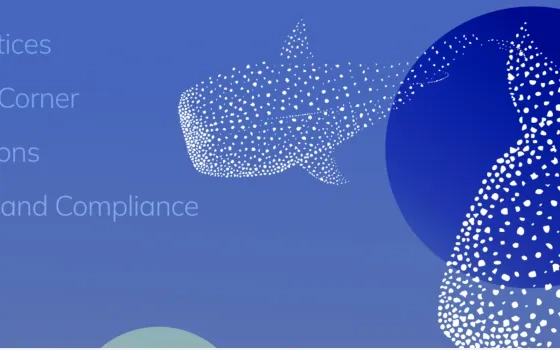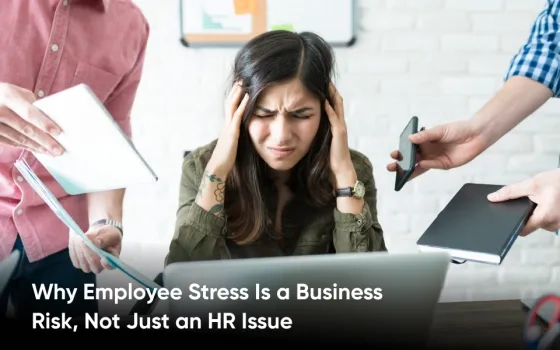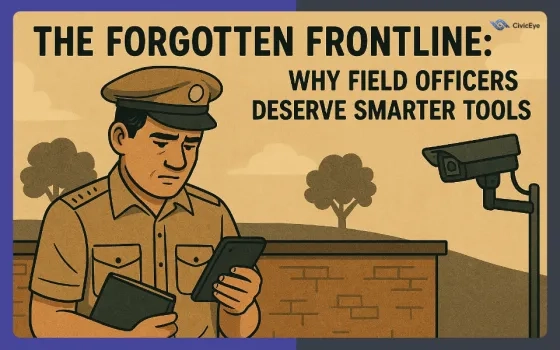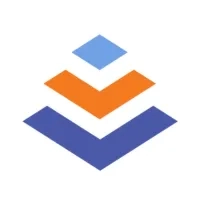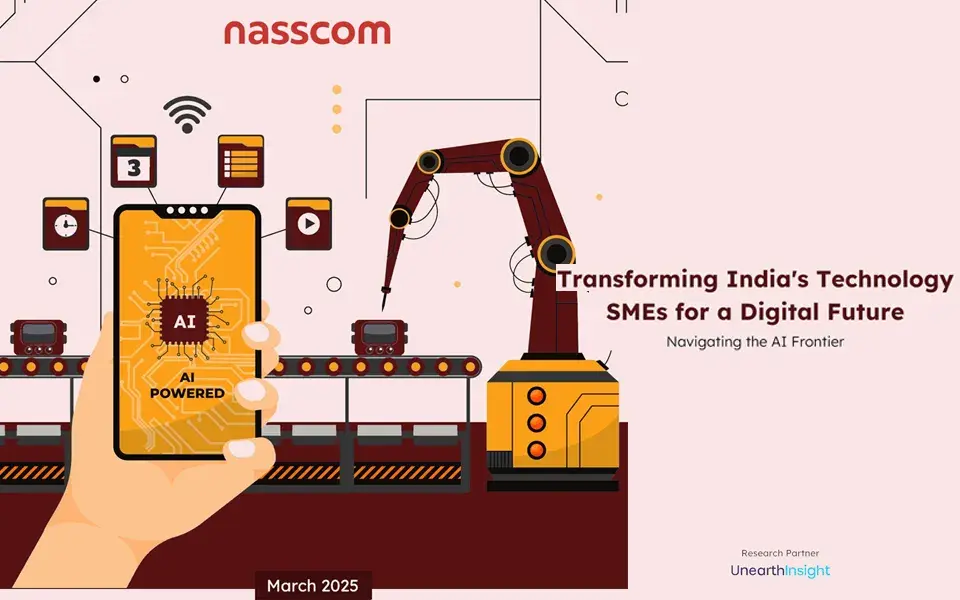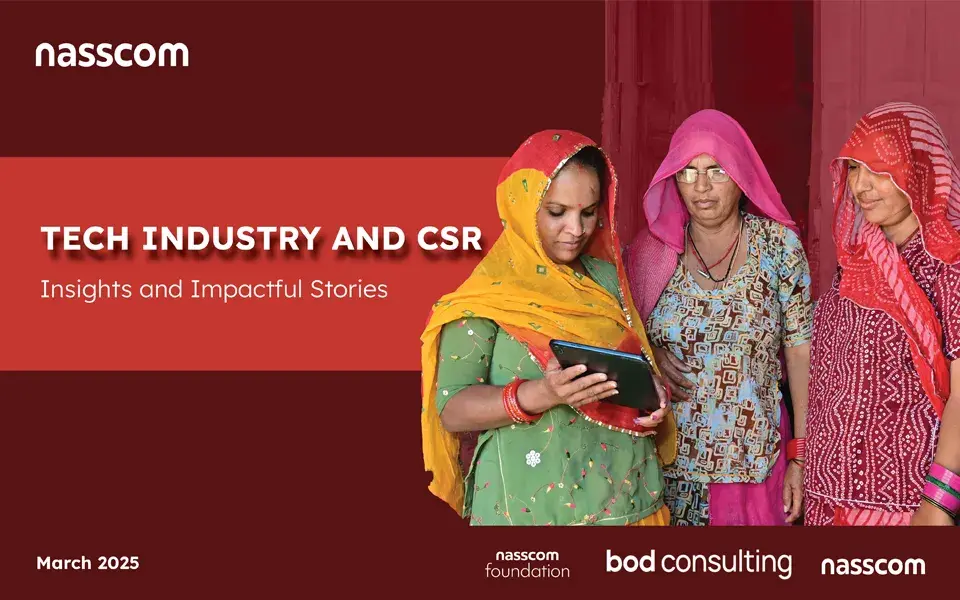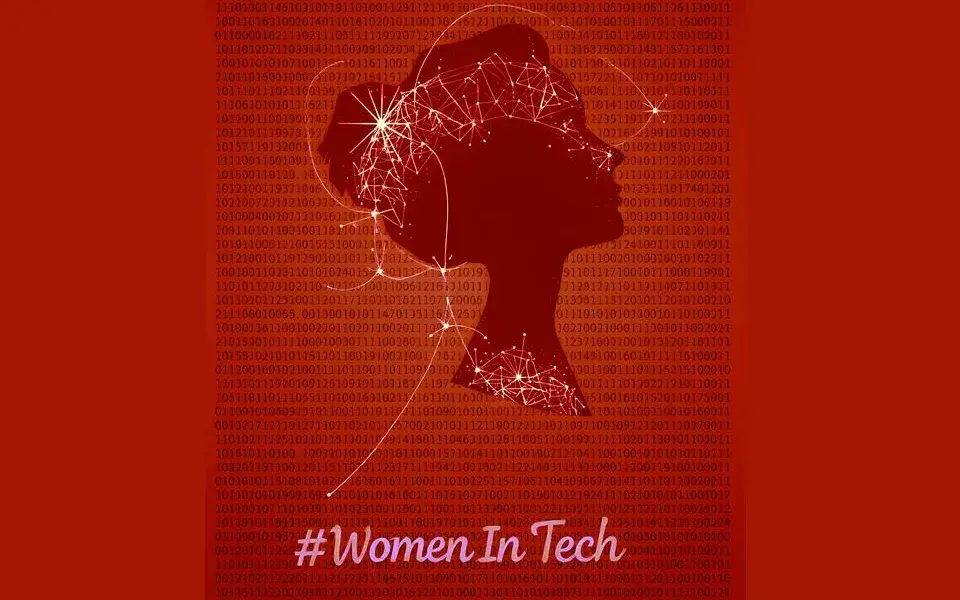Our workplaces are systems that have been historically influenced by our societies, good and bad. Organizations via their Diversity, Equity and Inclusion (DEI) efforts can play a vital role in correcting societal inequities to drive systemic social change. They become role models, lead the way for others to follow and often become catalysts for by prioritizing and integrating DEI in their overall business, CSR and ESG and growth strategy. They also set a powerful example for others, encouraging them to adopt similar practices. This ripple effect can extend beyond the workplace, influencing communities, industries, and even policy makers, ultimately contributing to a more just and inclusive society for all.
The post-COVID world continues to face a multitude of challenges that are affecting us and our societies globally. The volatile market and economic uncertainties impacting job markets, the ongoing conflict and war between regions, coupled with the growing threats of climate change and its impact and the rapidly changing technology landscape are among some significant shifts that people around are grappling with today.
DEI integrated in the Purpose and Values of the organization.
When an organization's DEI strategy extends from the core mission, purpose and values of an organization, weaving its principles into the very foundation of the business, it’s a sure shot way to cultivate a workplace culture that celebrates DEI as fundamental pillars of its identity. This approach often stems from the founder or founding team's vision and is integrated well into all aspects of the business. Another approach is integrating DEI as part of a change management strategy as the executives CEO or Founders sees value in integrating DEI as a change management strategy. When leaders understand that DEI is not just a moral imperative, but also a strategic advantage and work towards its success in the business.
Examples of organizations who’ve succeeded in these approaches include - Ben & Jerry's: This ice cream company has been known for its strong advocacy for social justice, including issues related to racial equity and LGBTQ+ rights, since its founding. Salesforce: Salesforce has been dedicated to diversity and inclusion from the early days. The company's founder, Marc Benioff, has been a vocal advocate for equality in the workplace. Thoughtworks: This leading global technology company vision is to proudly and actively seek to make itself and the industry more reflective and inclusive of the society that they serve. One of the five lenses in which they demonstrate their purpose includes fostering a vibrant community of diverse and passionate technologists.
The Tata Group: Diversity and Inclusion has been part of the Tata ethos since its foundation. Tatas values of unity and understanding, encourages and nurtures all forms of Diversity, respecting differences that are fundamental to an individual’s identity such as age, gender, ethnicity, race, physical ability, mental ability, sexual orientation as well as latent and invisible differences that shape our perspectives like, education, work experience, parental status, etc. People are the heart of an organization's culture, with leaders as exemplars. The purpose and values of an organization play a fundamental role in shaping and enabling its ‘Culture.’ It helps shape employee behavior, how they interact, make decisions and influences inclusion and equity. Leaders play a crucial role in setting the tone for these behaviors, as they are seen as exemplars, and their actions and attitudes have a significant impact on how employees interpret and embody these values thus shaping the culture.
It is crucial to acknowledge that the workforce is not immune to the broader injustices, and inequities that exist outside of the workplace. People are complex with intersectional identities, experiences. Intersectionality recognises that individuals experience challenges based on multiple and intersecting identities. These categories can create multiple levels of social injustice and often oppression or privilege.
These external factors can have a profound impact on employees' lives, well-being, and overall behaviors and experiences at work. It is neither realistic nor feasible to expect employees to entirely detach themselves from the injustices prevalent in the world, along with their personal experiences, and to dismiss the external challenges they encounter. Today, we also see rising voices of advocacy and activism, especially calling out the injustices that marginalized and underrepresented groups are facing across various platforms including social media, thus shaping public discourse.
When organizations have a DEI as part of their purpose and values, with leaders being role models, advocates and executive sponsors, it provides a structured platform for driving the inclusion and advocacy, thus creating safe spaces, allyship and belonging. It attracts people who are underrepresented and marginalized by creating a safe space, it provides a platform for DEI advocates and allies to accelerate their efforts and provides a learning space for those starting on this journey. It inspires people to contribute, make a difference and be an integral part of the organization's DEI mission and purpose. It’s not just a seat at the table, it's both a seat and voice at the table.
A Strategic DEI Agenda backed by affirmative Actions and Goals
Just having DEI as part of your purpose and values statement is not enough, it needs to be integrated in all aspects of the operations, functions, people practices and business roadmap.
This includes having a DEI Council and Employee Resource Groups helmed by the senior leadership that clearly and strategically decides on the areas of focus and the affirmative action required for the inclusion, attraction, retention and advancement of the particular under-represented marginalized group. This helps in addressing -
Addressing Historical Disparities: Affirmative action aims to correct historical disadvantages and systemic barriers that certain groups have faced. It provides a targeted approach to level the playing field. For eg. People with Disabilities (PWD) have for long been under-represented in the corporate sector. Companies like Wipro have invested in Disability Inclusion for many years now with a strategic framework CREATE – Career, Recruitment, Enablement, Accessibility, Training and Engagement) encompasses the key aspects for effective inclusion of employees with disabilities right from hiring and training to enablement and creation of accessible systems, which thus address the historical disparity that PwD have faced.
Promoting Equitable Opportunity: Affirmative action ensures that opportunities are accessible to all individuals, regardless of their background, and helps mitigate unconscious biases in hiring and promotion processes. This includes targeted recruitment efforts, sensitizing and awareness training and allyship programs. The Thoughtworks VAPASI program helps experienced women technologists who are currently on a career break, resume their tech journeys. This successful program started way back in 2004, has paved the way for many other organizations to follow suit.
Creating a Diverse Workforce: Setting diversity goals encourages organizations to actively seek out and hire individuals from underrepresented marginalized groups, which leads to a more diverse and inclusive workforce. Goals matter, as it helps build a cross functional approach that includes collective ownership across the business. A good example of a strategic DEI goal is SFDC, they aim to have 40% of employees globally to be women-identifying and non-binary by the end of 2026.
Reflecting Customer and Community Diversity: In a globalized world, companies that reflect the diversity of their customer base and the communities they serve are often better equipped to understand and meet the needs of their diverse stakeholders they serve. Netflix for example is committed to representing the diversity of its global audience in its content. They actively seek out and promote content that reflects a wide range of cultures, perspectives, and experiences. They also have diverse employee resource groups (ERGs) to support their diverse community including Accessibility for their People with Disabilities and Their Allies, Mental Health ERG, Muslim@ ERG, Pride@Netflix and Women@Netflix to name a few.
Leveling the playing field: When organizations address societal inequities and work towards representation and leveling the playing field for those marginalized and disadvantaged it helps tackle systemic inequities and contribute to a more just and balanced society, ultimately leading to positive social transformation. The Tata Affirmative Action Programme (TAAP), adopted in April 2007, attempts to address the prevailing social inequities in India by encouraging equitable opportunities and positive discrimination for the Scheduled Castes and Scheduled Tribes (SC/ST) communities.
Building an inclusive brand: Today investors, shareholders, board members, potential clients and top talent seek inclusive brands that care about Diversity, Equity, and Inclusion (DEI) for several compelling reasons. This includes innovation, market expansion, attracting diverse talent, brand reputation and loyalty, competitive advantage An example of building an inclusive competitive brand is the LaLiT Suri Hospitality group, thats committed to fostering a diverse and inclusive workplace through our #PureLove campaign for LGBTQIA+. The LaLiT is the first among 300+ worldwide to meet UN standards for LGBTQIA+ inclusivity. They have shaped inclusive policies, sensitized staff, and championed diversity. The hotel's proactive stance on LGBTQ+ inclusion has likely translated into positive word-of-mouth and online reviews, further enhancing its reputation as a welcoming establishment. This positive reputation, in turn, serves as a powerful marketing tool, in helping the Lalit Ashok Hotel stand out in a competitive industry and attracting a diverse clientele seeking an inclusive and affirming travel experience.
A holistic way to drive the Diversity, Equity and Inclusion Agenda
Weaving DEI into the CSR and ESG strategy - Weaving DEI into the Corporate Social Responsibility (CSR) and Environmental, Social, and Governance (ESG) strategy in a holistic and deliberate way helps drive larger social impact. The Companies Act, 2013, along with the Companies (CSR Policy) Rules, 2014 makes it mandatory for companies meeting the criteria of having a net worth of rupees five hundred crore or more, turnover of rupees one thousand crore or more, or net profit of rupees five crore or more to abide to the CSR compliance. In 2021 SEBI mandated the Business Responsibility and Sustainability Report (BRSR) to replace the existing Business Responsibility Reporting (BRR). The updated reporting format mandates ESG policies and requirements for the top 1000 listed companies based on market capitalization. A recent survey by Deloitte India on ESG preparedness showed that Indian businesses see value in sustainability and building ESG capabilities. Infosys has Disability Inclusion as a core area of focus in DEI, the extend this to their Education Programs in CSR, but supporting initiatives for children with disability. Their work in education is driven by the belief that education is a key enabler of social change to create a better society.
Mapping DEI CSR and ESG strategy to the Sustainable Development Goals - Each of the goals have a target that companies can collectively work towards to build a greener, fairer, better world by 2030. It’s a reality that women, children and the marginalized often face a disproportionate burden when it comes to the impact of factors like climate change and natural calamities, conflict and war, migration, displacement, economic instability. These vulnerable groups are more likely to face greater challenges in health, safety, education etc. Hindustan Unilever, one of the largest FMCG companies in India, maps their DEI strategy to the SDGs. They focus on promoting equity across their workplaces, brands, supply chain, and communities by enhancing the capabilities of their business leaders and employees for equity advocacy, diversity awareness, and fostering psychological safety. Their objectives align with several UN Sustainable Development Goals (SDGs). Another example is the The Infosys Foundation, the CSR wing of the technology company Infosys, which in partnership with eVidyaloka Trust, has effectively launched the Rural Digital and STEM Education Program, providing quality education in rural India and helping bridge the digital divide for underprivileged communities
Leveraging the power of business for Advocacy & Social Impact: The private sector has an important role to play, to drive positive social change and equitable opportunities. For eg. Hotelier Keshav Suri was one of the petitioners in the Section 377 to decriminalize homosexuality, Godrej Group. In India, NITI Aayog - National Institution for Transforming India plays a crucial role in shaping and implementing policies for various sectors of the economy. NITI Aayog collaborates with companies, both public and private. One example of a successful program is the Women's Entrepreneurship Platform. a unified access portal which brings together women from different parts of India to build a nurturing ecosystem that enables them to realize their entrepreneurial aspirations. The Amazon Saheli Program is one such initiative to bring to the fore locally made products from women entrepreneurs in India. A program to enable and provide opportunities for women to become successful sellers on Amazon.
Supplier Diversity - With the goal to to promote inclusivity, equity, and economic opportunities for businesses owned by minorities, women, LGBTQ+ individuals, and other historically marginalized communities a strategic approach to diversifying the supply chain is via vendor inclusivity and economic empowerment program which includes supporting the growth and development of diverse suppliers by offering mentorship, resources, and assistance in meeting necessary qualifications. For eg. Deloitte India is dedicated to promoting the success of small, disadvantaged, and diverse businesses, recognizing their essential role in the organization's success and their impact on clients and communities. Their diverse suppliers are those who are running for-profit organizations with over 51% control, ownership, or operation by individuals falling within specified categories which include women entrepreneurs, LGBTQ+ and People with Disability.
Employee Voluntary Programs and Community Engagement - When organizations provide opportunities for employees to contribute to DEI it enhances and accelerates their inclusion journey and creates a ripple effect impact that touches personal journey in understanding the importance of equity and inclusion while it helps them be advocates of DEI in their networks. For example GE India’s LGBTQ+ ERG plays an active role in driving queer inclusion from organization Pride month. Their Pride March had over 1,600 employees from 12 campuses across India united for Pride Walks. Publicis Sapient Women Career Returnee Program SPRING is another example, this initiative provides skill enhancement opportunities and facilitates mentorship to help women navigate and catch up with the latest industry trends.
Encourages Inclusive Products and Service Offerings - An intentional DEI approach when building teams helps in building Inclusive and accessible products that can be utilized by individuals with diverse abilities and backgrounds. The research done by The Great Place to Work on how diverse teams unlock innovation, help foster new ideas and better decision making is one of the many researches that prove this. Capgemini Research Institute report, The key to designing inclusive tech: creating diverse and inclusive tech teams which took inputs from diverse employees, leadership and their consumers across large organizations across nine countries in their key consumer-facing industries found that diverse tech teams lead to more inclusive tech design, increases innovation and creativity which enables greater scalability of digital products and services. For example Microsoft's commitment to DEI has not only fostered a more inclusive workplace but has also led to the creation of groundbreaking products like the Xbox Adaptive Controller, designed to meet the needs of gamers with disabilities.
Enhancing Continuous Learning, Empathy and Belonging - Being inclusive in a continuous journey of learning and unlearning. Organizations should ensure DEI is integrated into the employee lifecycle, engagement and experience, this includes onboarding, learning and development opportunities, leadership development programs etc. Continuous learning programs, DEI training and workshops help employees develop essential skills such as empathy, intercultural communication and conflict resolution. Workshops on Unconscious Bias, Cultural Inclusion, LGBTQ+ Inclusion etc. help in building the essential skills for an inclusive work environment.
Inclusive Policies and Programs - DEI needs to be seamlessly woven into the employee policies and benefits, keeping the under-represented and marginalized communities in mind. For example - making the Prevention of Sexual Harassment (POSH) policy gender inclusive and not just for women helps create a safe and harassment free space for all employees, particularly those belonging to the LGBTQ+ community. This goes a long way into creating safe spaces for all, letting each employee know they matter and strives to build equitable support for all. Inclusive policies go a long way in attracting diverse talent. For eg. Netflix shares some of its employee support policies openly online to show their commitment, this includes support offered on Mental Health and Wellness to Parental Leave, Medical health benefits etc. Pay equity is crucial to ensuring that employees receive fair and equal compensation for their work, regardless of their identity. Salesforce was one of the first major companies to publicly commit to addressing gender pay gaps, conducting regular audits to ensure equal pay for equal work.
DEI woven into leadership representation & KRA - Another crucial way of ensuring holistic inclusion is to make leaders' accountable for DEI by making it part of their Key Result Areas (KRA), as this is essential in driving results. If there is affirmative action, it should be tied to important goals like hiring, retention and advancement with leaders given clear goals which their departments/ teams should achieve. For this, leaders should be set up for success with clear alignment to the DEI values, purpose and why it matters along with the right learning and development. Periodically sharing data and statistics to assess the effectiveness of the leaders teams, helps in progress as DEI cannot be achieved without measurement against existing employee metrics and industry benchmarks established by leaders in the field of 'inclusion.
In conclusion, Diversity, Equity, and Inclusion (DEI) is not just a moral or business imperative, it helps drive larger societal change and systemic equity. When DEI is effectively integrated into the core values, mission, and purpose they become catalysts for systemic social change, setting the stage for a more just and inclusive society. Recognizing the intersectionality of individuals and acknowledging external societal challenges, organizations must create safe spaces, allyship, and belonging. Affirmative action, reflected in strategic DEI goals, not only addresses historical disparities but also promotes equitable opportunities, diverse workforces, and inclusive employer and business brand. Moreover, weaving DEI into CSR and ESG strategies, aligned with Sustainable Development Goals, amplifies the impact, contributing to a larger social transformation. By prioritizing Diversity, Equity, and Inclusion, organizations not only cultivate more inclusive and equitable workplaces, but they also set a powerful example for other institutions, encouraging them to adopt similar practices. This ripple effect can extend beyond the workplace, influencing communities, industries, and even policy makers, ultimately contributing to a more just and inclusive society for all.
* This Paper/ Article is also published in the publications released by ISOL - University of Hyderabad's International Conference on the theme - Diversity, Equity and Inclusion: Creating Value-Based and Sustainable Organizations.



